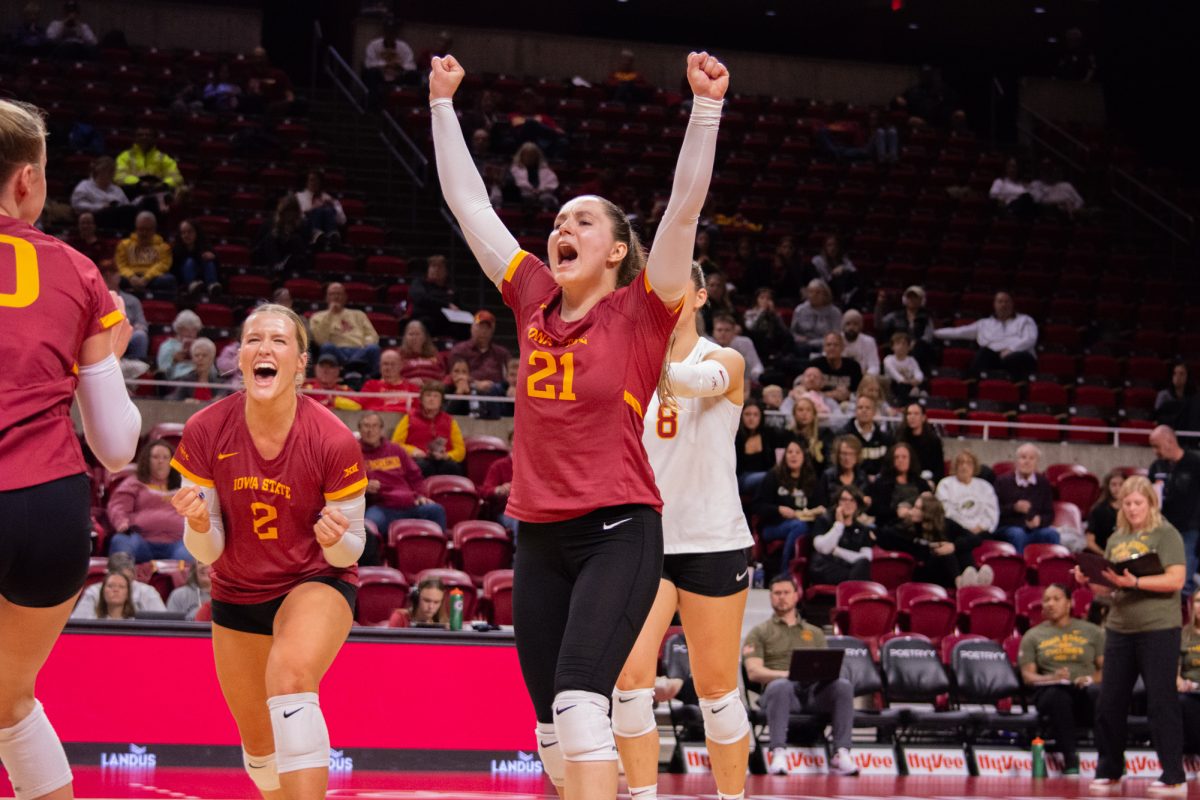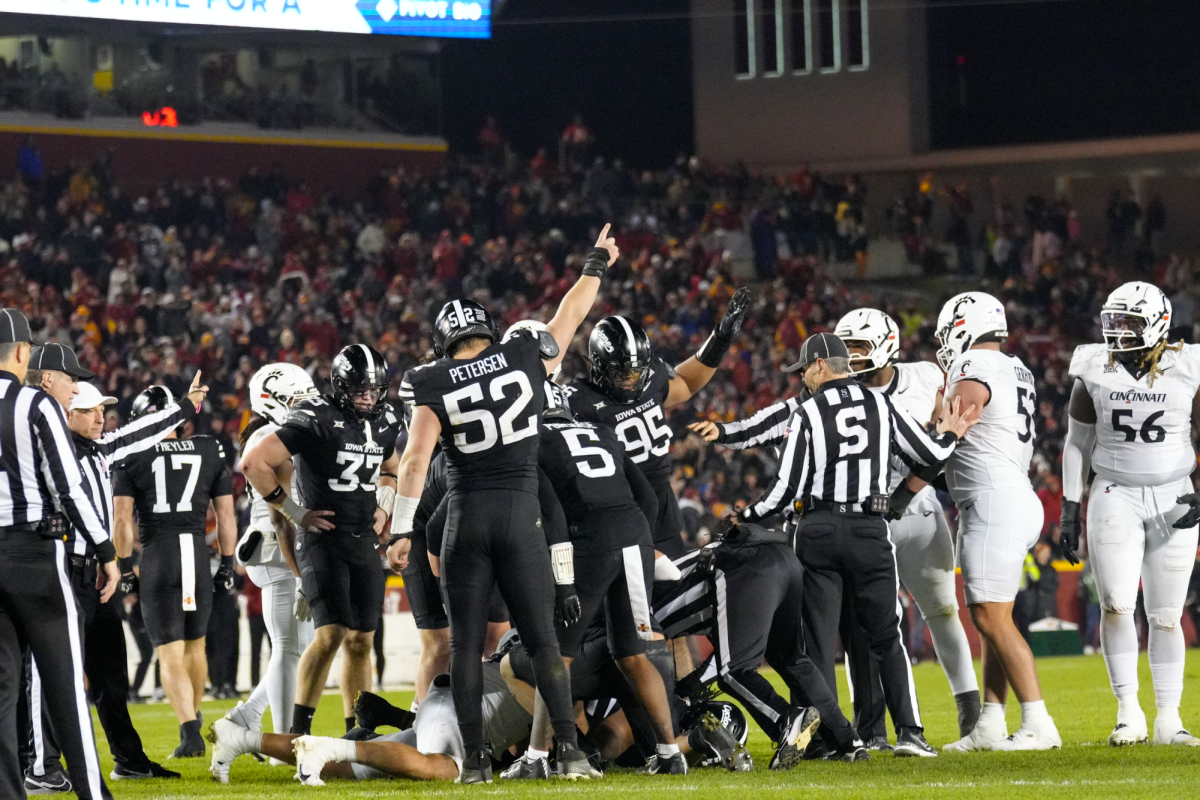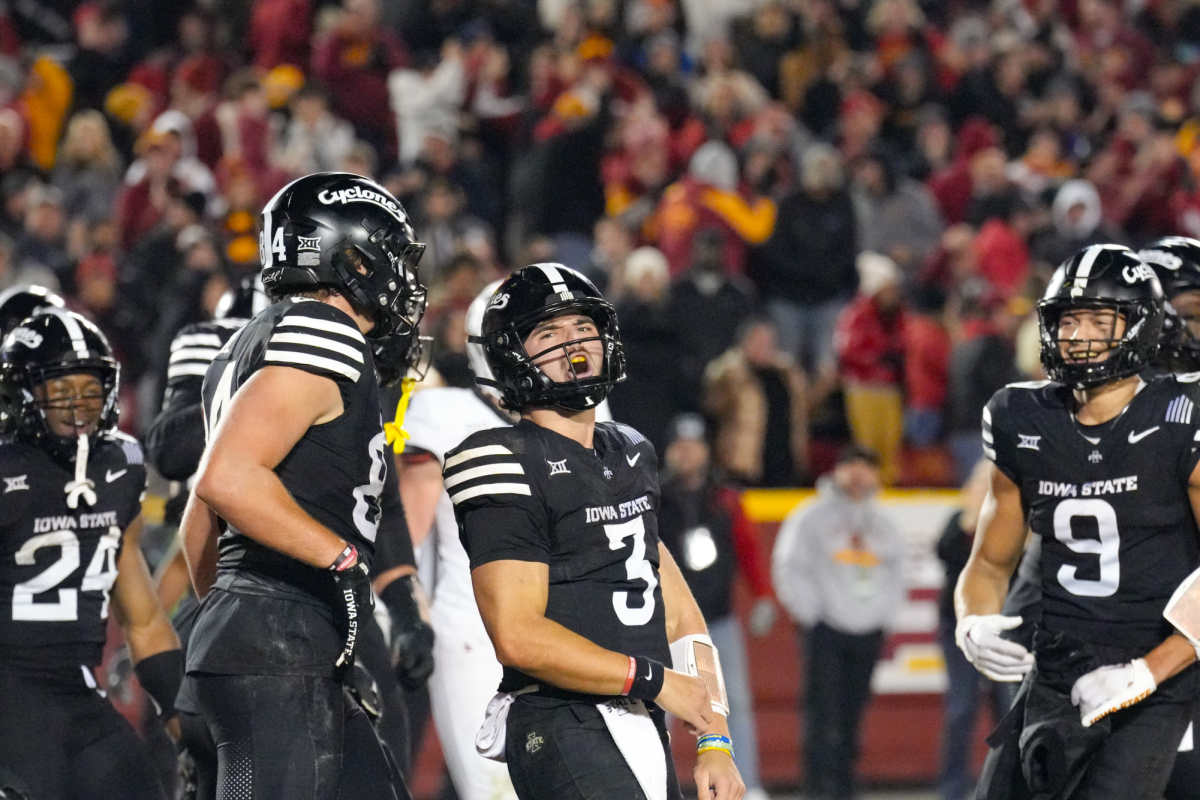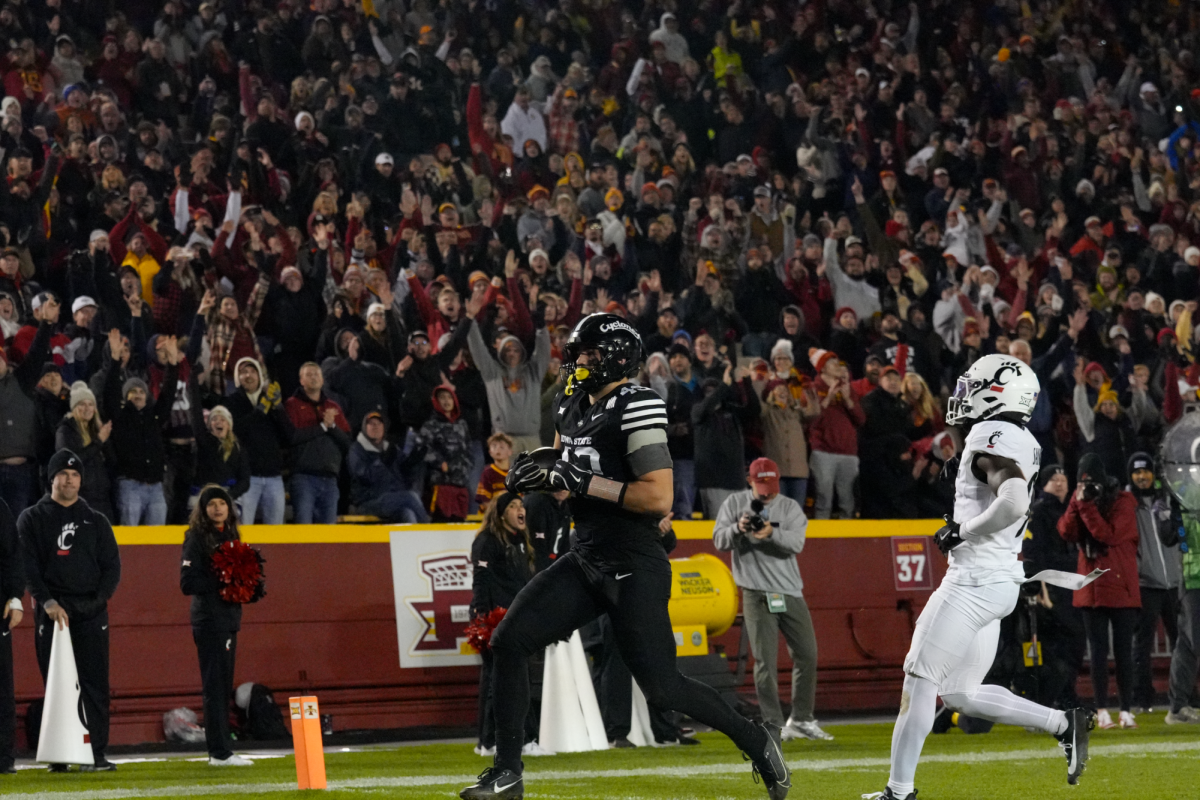Exercise, flu shots may ward off colds
October 22, 2002
Regular exercise might help boost the body’s ability to fight flu and common colds, ISU researchers say.
A team of four ISU researchers are looking into whether regular exercise can help boost response to influenza shots.
“It is a study designed to look at immune response in older adults and if exercise can enhance [immune response],” said Marian Kohut, assistant professor of health and human performance.
She was part of a pilot study that surveyed older adults’ exercise habits and response to influenza shots.
The results prompted further study.
Kohut found that the more regularly a person age 65 or older exercised, the better response he or she had to influenza shots.
She has taken the year off to research the effects of exercise along with Warren Franke, associate professor of health and human performance; Joan E. Cunnick, associate professor of microbiology; and Daniel Russell, professor of human development and family studies.
Kohut said the study focuses on older adults because “when older adults get vaccinated [for influenza], some do not develop a protective immune response.”
This is because with age, immune response declines.
An influenza vaccine should stimulate the body to produce more antibodies, which better protect the body against influenza.
Although an older adult might get a vaccine, it often produces no response.
Exercise might change that.
Kohut said the benefits of exercise probably stem from increased neuro-endocrine communication or psychological factors. Exercise can reduce stress, which benefits one psychologically, she said.
When you exercise, neuro-endocrine communication increases, which enhances immune response.
Kohut said exercise has been proven in numerous studies to reduce stress and lessen depression, which can in turn cause a better immune response in adults.
She said the effects of exercise are probably similar in younger, college-age adults, but older adults are more compromised with their declining immune systems.
Jarod Lafrenz, fitness specialist for the Thielen Student Health Center, said that college students’ poor sleeping habits are more to blame for failing immune responses than lack of exercise.
He said exercise most likely benefits immune response by keeping production of white blood cells in check, Lafrenz said.
Exercise can be harmful if a student overtrains, or exercises to exhaustion, resulting in rapid weight loss and having the reverse effect on an immune system, he said.
Exercise cannot replace a good night’s sleep, either.
“Honestly, there is no real compromise for sleep,” Lafrenz said. “Although exercise might help.”






